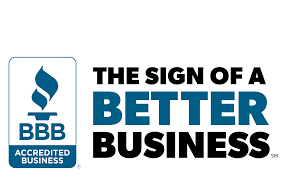In past generations, those 65 and older would eventually leave their homes to move to retirement communities or assisted living facilities. Now, though, more and more homeowners are choosing to age in place. With this comes new challenges for homeowners associations in trying to create a safe and accommodating environment for their elderly homeowners. Here’s how you can ensure the safety of aging homeowners in your community.
Safety Considerations for Elderly Homeowners in Your HOA
First, it’s important to establish why there is a need to create a safe environment for aging residents in HOA communities. Elderly homeowners are more prone to illness and injury. Health issues such as leg weakness, poor vision, and balance problems significantly increase their fall risk.
They can trip on wires or bump into furniture more frequently. For elderly homeowners who live alone, even minor injuries could prove to be fatal. Cognitive decline — ranging from natural forgetfulness to dementia and Alzheimer’s — can also lead to safety hazards. This includes leaving the stove on or forgetting to turn off the faucet.
Apart from being a danger to themselves, elderly homeowners may also pose a danger to other people in your community. There are numerous concerns such as an elderly homeowner with sight issues driving in a community with children and pets, odors and pests seeping into the homes of neighbors, and so on.
With these safety issues in mind, how can a homeowners association protect the safety of not only elderly homeowners who want to age in place but also the entire community?
4 Ways to Ensure the Safety of Aging HOA Residents
If your HOA has a growing senior community, it’s important to establish guidelines and programs that will ensure their safety. Here are four ways that can make your community safe and secure for your aging residents.
1. Obtain Emergency Contact Information
Obtaining emergency contact information should be a standard operating procedure for associations. Every homeowner who moves into your community — whether young or old — should provide details of their family members or emergency contacts. Each year, ask homeowners to update their contact information. HOA will then have up-to-date contact information for aging residents.
Having contact information is important in case of emergencies involving elderly homeowners or if the association has safety concerns involving the elderly homeowners. Because of privacy and legal concerns, the HOA may not be able to address the issues in the same way that family members or emergency contacts can.
2. Perform Regular Welfare Checks
 In many cases, family members don’t always come to help elderly homeowners. It’s important for the community to have alternative solutions.
In many cases, family members don’t always come to help elderly homeowners. It’s important for the community to have alternative solutions.
For instance, the HOA can perform regular welfare checks to the elderly homeowners in the community. It doesn’t have to be a formal visit. It can simply be a fellow homeowner or HOA committee member checking if their elderly neighbor is doing alright.
For more serious concerns, though, the HOA can ask their local government or police to perform a welfare check on homeowners who cannot take care of themselves anymore. Some states may even have public administrators or gerontologists that can offer advice and interventions for elderly homeowners.
3. Provide Proper Accommodations
As your residents get older, they may start to develop chronic illnesses such as diabetes, hypertension, and other age-related health issues. When elderly homeowners in your community develop disabilities, they become protected by the Americans with Disabilities Act.
As mandated by law, the HOA is required to provide reasonable accommodations for their aging residents. You can install accessibility ramps and other mobility aids in communal areas, process requests for service animals and emotional support animals, and provide alternative means of transportation.
4. Host Activities and Programs Geared Towards Elderly Homeowners
Given the health risks associated with aging, exercise, and movement become all the more important for elderly homeowners. However, if they are living alone, there is no one to encourage them to do so. To ensure the safety of elderly homeowners, the HOA can introduce activities and programs that will help get them healthy.
You can have exercise classes that help improve their strength and balance. Brisk walking, swimming, and dancing are also wonderful ways to encourage physical activity as well as social interactions. Exercise programs don’t have to be intense, but they must be consistent. You might have younger homeowners who are willing to help out for these programs.
The HOA can also form committees that cook and bring food to elderly homeowners, offer to help clean around the house, run errands for them, and help with their other needs. If you have a large senior community, it might even be worth investing in regular cleaning services for elderly homeowners.
Legal Concerns for Communities with Elderly Homeowners
 An association with a growing number of elderly homeowners must carefully consider the legal gray areas that come with the territory.
An association with a growing number of elderly homeowners must carefully consider the legal gray areas that come with the territory.
For instance, it’s not okay to force open a door and perform a welfare check on an aging resident. Or, how do you know when to intervene when an elderly homeowner is already posing a risk to the community?
To help reduce legal risks and liabilities, the HOA should review all governing documents, ordinances, and statutes that can affect how you deal with elderly homeowners in the community. Before making amendments or changes, board members should consult with the HOA attorney. This is to ensure that everything is legal and that there are no discriminatory practices that could land the HOA in deep, legal trouble.
Make Your Community Safe for Elderly Homeowners Today
The best way to make your community safe for elderly homeowners is to prepare ahead of time. Even if you do not have a significant senior population yet, the HOA should already start thinking about changes or improvements that they can make. Starting ahead of time also means that you can iron out any legal issues that may arise. Keeping in mind these safety considerations and recommendations will allow you to create a safe community for your elderly homeowners.






